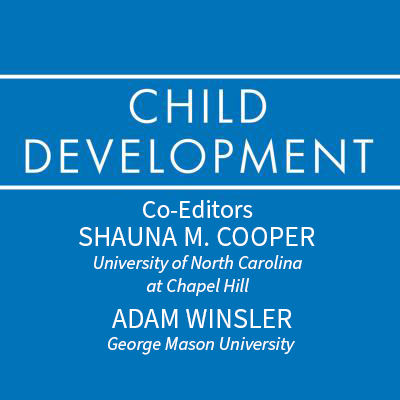Child Development
Since its inception in 1930, Child Development has been devoted to original contributions on topics in child development from the fetal period through adolescence. It is a vital source of information not only for researchers and theoreticians, but for a broad range of psychiatrists and psychologists, educators, and social workers across the field. Child Development is published on a bimonthly basis.
2024 Journal Impact Factor Scores:2-Year Impact Factor: 3.8 | 2024 Journal Citation Reports (Clarivate Analytics) Ranking:Psychology, Developmental: 16 out of 94. |
|---|
SRCD members receive full digital access Child Development. If you are an SRCD member and would like to access the publication, please log in to your SRCD member account. Not an SRCD member? Learn more about the benefits of membership.
Contact: cdev@srcd.org
View Issues Online
1990 – Present 1930-1989 (in JSTOR) Articles Published Online to Early View Special Sections
For Authors and Reviewers
- Submission Guidelines
- Author Guidelines on Scientific Integrity and Openness
- Author Guidelines for Registered Reports
- Reviewer Guidelines
- Reviewer Guidelines for Registered Reports
- Special Issues and Sections
- Request Permissions
- Statement on Antiracism, Equity, and Inclusion in SRCD Publications
- SRCD Generative Artificial Intelligence (AI) Policy.
Statement on Anti-racism, Equity, and Inclusion in SRCD Publications
As our highly regarded journals are perhaps the most public-facing element and explicitly gatekeeping mechanism of the SRCD enterprise, we must critically examine the extent to which our journals, Editors and Editorial Boards, reviewers and review standards, and Publications Committee activities implement practices and policies grounded in inclusive and anti-racist principles. Read the full statement.
Current Calls for Child Development
There are no current calls at this time. Please check back for future opportunities.
